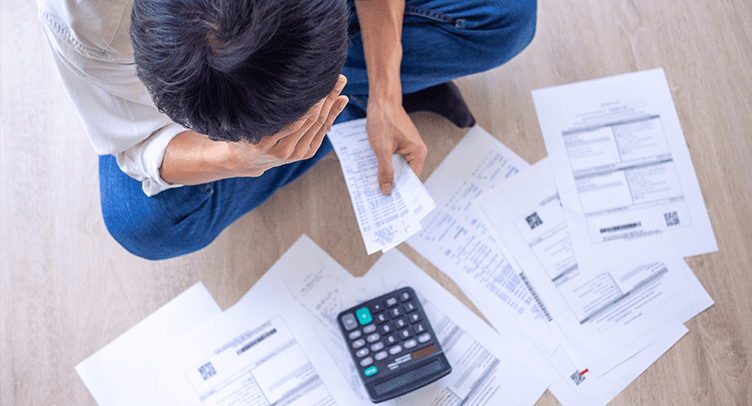Sales proposal by licensed brokers*
2023 has reached the end of the year which means it is a tax planning season. This is beneficial for everyone, as proper tax planning, especially at the beginning of the year, can provide guidance on how to maximize tax deductions which can help you save on taxes or even avoid paying taxes altogether. This article will share some insights on tax planning and who needs to pay personal income tax.
Who Needs to Pay Personal Income Tax?
Paying personal income tax is a tax requirement that everyone with income must obey, regardless of the source of that income. This includes those who earn income through employment, self-employment (freelancers), business activities or investment. It also includes those whose income is from other sources such as property sales, pension income or social security benefits, etc.
What You Should Know When Planning for Tax Deductions.
Planning Ahead of Time (Since the Beginning of the Year).
Planning ahead to reduce tax deductions is a benefit for financial management. It allows you to calculate the potential tax deductions for the year and helps in managing your financial situation more efficiently, reducing the tax burden over time. This also makes it easier to handle year-end tax payments.
Check All Tax Deductible Lists.
It’s necessary to ensure that you take full advantage of available tax deductions. In 2023, common tax deductions include personal and family deductions, group insurance deductions, savings and investment deductions, donations deductions, and economic stimulus deductions.

Tax Filing Period.
According to Thai laws, tax filing typically occurs from January 1st to March 31st each year. You can file your taxes on paper or online, with the online filling period, which can be filled from January 1st to April 8th.
Tax Filing: Penalties and Imprisonment.
- Failure to File or Late Filing: A fine of not more than 2,000 Baht.
- You will have to pay a fine of 1.5% per month if you file a late filing (in person).
- Late Filing Online: If you file your taxes online but do not pay taxes by March 31st, you will be required to submit your taxes in person at the Revenue Department and have to pay a penalty of an additional 1.5% per month.
- If the Revenue Department discovers that you haven’t filed your taxes or that you haven’t paid the full amount, you will need to pay for the rest and a fine exceeding 2 times of that tax.
- False Information: Filing taxes with false information can result in imprisonment ranging from 3 months to 7 years and fines between 2,000 to 200,000 Baht.
- If you intentionally avoid filing taxes, you may face a fine of up to 200,000 Baht or imprisonment for up to 1 year, or both.
Tax Installment Payments.
One of the benefits of the Thai tax system is the ability to make tax installment payments. You can opt for installment payments when your tax liability is at least 3,000 Baht and can spread the payment up to 3 months.
Contact the Revenue Department.
If you have further questions or need assistance with tax filing, you can contact the Revenue Department. They can provide information and support for your tax-related questions. You can reach them by calling 1161 in business hours (from 8.30 AM to 6.00 PM).

Choose Tax-Deductible DIY Life Insurance by dSurance.
For those who seek insurance that provides both protection and tax deductions, we highly recommend the DIY life insurance from dSurance. This life insurance offers coverage in the event of your passing, your beneficiaries will get a lump sum payment. It can help ease the financial burden and cover expenses, ensuring financial security for your loved ones. Additionally, with DIY life insurance, you will also receive daily compensation for each day spent in a hospital (up to 365 days/stay). More importantly, if you are diagnosed with one of the ten covered severe illnesses, you will get a lump-sum payout to cover medical expenses when dealing with illness or injury.
The ten critical illnesses covered are
- Advanced-stage cancer.
- Meningitis and encephalitis caused by bacterial infection.
- Chronic kidney disease.
- Liver failure.
- Sudden heart muscle infarction due to blood loss.
- Ruptured or blocked brain blood vessels.
- Major artery bypass surgery.
- Cardiac muscle grafting surgery.
- Heart valve replacement or repair.
Tax Deductions with Life Insurance and Health Insurance.
General life insurance can offer a maximum tax deduction of up to 100,000 Baht based on the actual premium paid. This deduction can be claimed as long as the combined life insurance premiums do not exceed 100,000 Baht. Health insurance also provides tax deductions of up to 25,000 Baht per year.
Planning for tax deductions is essential for long-term financial stability. Proper research and planning to reduce future tax liabilities is a wise financial strategy. Having life and health insurance not only protects your life and well-being but also provides you with the additional benefit of reducing your taxes as well. Note to self that before purchasing insurance, compare each plan and read the terms and conditions carefully to ensure you will get the perfect insurance that matches your needs.
Tricks on How to Choose the Health Insurance that Suits You the Best.
Nowadays, there are a variety of insurance plans from a lot of insurance companies. Of course, when it comes to getting insurance....
How important cancer insurance is and when should you get it?
According to health statistics around the world, it shows that cancer is the number one cause of death and is a disease that is a public health problem worldwide which of course Thailand is included.
Glossary Terms to Know Before Buying Life Insurance
In an era where nothing is certain, many people begin to seek stability in life. Having life insurance is another way to secure safety in life.




